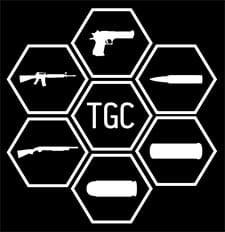
USA – -(Ammoland.com)- Welcome back to The Legal Brief, the show where we CRUSH the various legal myths and misinformation surrounding various areas of the gun world. I’m your host Adam Kraut and today we are talking about who actually needs a federal firearms license or as we all know it an FFL.
A number of you have been asking for information related to FFLs. You want to know things like who needs them, the different kinds that exist and the process in obtaining them.
In order to keep things simple, for this episode, we are going to discuss who needs one. And this episode is not covering Curio and Relic licenses.
So you mosin nagant owners can keep on waiting.
Gun Control Act or GCA
The Gun Control Act or GCA requires that individuals who are engaged in the business of importing, manufacturing, or dealing in firearms be licensed. It also requires those who import or manufacture ammunition be licensed. Seems simple enough right? As always there is more to it than meets the eye. However, in the interest of streamlining the discussion, we are only going to discuss the license related to dealing in firearms.
The term ‘dealer’ means (A) any person engaged in the business of selling firearms at wholesale or retail, like your typical dealer (B) any person engaged in the business of repairing firearms or of making or fitting special barrels, stocks, or trigger mechanisms to firearms, like gunsmiths or (C) any person who is a pawnbroker, which has its own special license type. It is important to note, the regulations mirror the law, except that it adds “[t]he term shall include any person who engages in such business or occupation on a part-time basis.” So if you thought you could skirt by without a license because it wasn’t your full time job…think again.
The law defines the term “engaged in the business” to mean different things depending upon whether we are discussing the importation, manufacture or dealing in firearms. Likewise, it means something different in relation to ammunition.
But since we are talking about dealers, the term engaged in the business means “a person who devotes time, attention, and labor to dealing in firearms as a regular course of trade or business with the principal objective of livelihood and profit through the repetitive purchase and resale of firearms.” It goes on to say “but such term shall not include a person who makes occasional sales, exchanges, or purchases of firearms for the enhancement of a personal collection or for a hobby, or who sells all or part of his personal collection of firearms”
And don’t worry, federal law actually defines the term “principal objective of livelihood and profit” in part to mean “the intent underlying the sale or disposition of firearms is predominantly one of obtaining livelihood and pecuniary gain, as opposed to other intents, such as improving or liquidating a personal firearms collection.” Important thing to note, it does not require you actually make a profit. You just need to be out to make one. And if you’re not, maybe selling guns isn’t for you.
So, where can one be engaged in the business in dealing in firearms? The answer is anywhere. A license is not only required for those who have a physical storefront where people actually receive the firearms. If you’re selling guns over the internet and meet the criteria specified above, it is likely you would need a license. However, you would still need a physical location for the license to operate from, such as your home. FFLs can also sell firearms at gun shows and sanctioned events. That being “gun shows” like that we all know and love where there is usually anything and everything but guns being sold, in addition to events sponsored by “any national, State, or local organization, devoted to the collection, competitive use, or other sporting use of firearms, or an organization or association that sponsors functions devoted to the collection, competitive use, or other sporting use of firearms in the community.” That would include events like Knob Creek, Stone Mountain Machine Gun Shoot, local gun club raffles, etc. You’d obviously first want to ensure that ATF approves the event prior to conducting business at one. Otherwise you could risk losing your license.
One question that seems to go unanswered is how many guns do I need to sell in order to require an FFL. The answer, as with everything that is legal related, is that it depends. There is no bright line rule that says if you sell more than X number of firearms you need a license. Likewise, there is no amount of profit or time devoted that triggers the requirement either. It is entirely fact dependent.
The courts have been good enough to give us some criteria to look at in order to determine if one is engaged in the business in dealing in firearms. They include 1) are you representing yourself to be a firearms dealer?, 2) are you repetitively buying and selling firearms?, 3) What circumstances under which the firearms are being sold, 4) are you looking to make a profit?
While it is not an all-inclusive list, it does give one some things to look at in order to determine whether their activities would require they need a license to be a dealer in firearms. Remember, activities that would require a license to be a manufacturer, importer of firearms or manufacturer or importer of ammunition are not covered in those criteria.

Rather than make up my own examples, ATF was kind enough to provide some. So we’ll do a quick review to see if you understand generally when someone may need an FFL.
“Bob inherits a collection of firearms from his grandfather. He would rather have cash than the firearms, so he posts them all online for sale. He makes no purchases, but over the course of the next year he sells all of the firearms he inherited in a series of different transactions.” Does Bob need an FFL?
Bob does not need a license because he is liquidating a personal collection.
“Sharon travels to flea markets the first Saturday of every month, buying undervalued goods, including firearms. The last Saturday of every month Sharon rents a booth at the flea market and sells her items at market value for a profit. She hopes to make enough money from these sales to finance a trip to Italy next year.” Does Sharon need an FFL?
Sharon does. Why? Because she is repetitively buying and selling firearms with the primary objective of profit.
As always, if you are unsure whether your activities would require you to have an FFL, contact competent legal counsel to assist. ::wink wink::
Hopefully that gives you a better understanding of who needs an FFL. If you guys liked this episode, you know what to do, hit that like button and share it around with your friends. Have a question you want answered on this show, head over to The Legal Brief section on theguncollective.com. Don’t forget to like The Gun Collective on Facebook, Instagram, YouTube, Full 30, Snap Chat and wherever else you can catch us on social media.
And as always thanks for watching!
Links for this episode:
- 18 U.S.C. § 923 – Licensing : https://www.law.cornell.edu/uscode/text/18/923
- 27 C.F.R. § 478.41 – Licenses | General : https://www.law.cornell.edu/cfr/text/27/478.41
- 18 U.S.C. § 921 – Definitions : https://www.law.cornell.edu/uscode/text/18/921
- 27 C.F.R. § 478.11 – Definitions : https://www.law.cornell.edu/cfr/text/27/478.11
- 27 C.F.R. § 478.100 – Conducting Business Away From Licensed Premises : https://www.law.cornell.edu/cfr/text/27/478.100
- ATF Guide – Do I Need a License to Buy and Sell Firearms? : https://www.atf.gov/file/100871/download
About The Gun Collective
The Gun Collective is dedicated to bringing you the highest quality, fast paced gun content possible. Started in June 2015 by Jon Patton, TGC has rapidly taken off to become a go-to source for the things you need to know without a bunch of BS. Please check out TheGunCollective.com to learn more and see what the hype is all about!
